Question And Answer
Publications
Articles, publications, books, tools and multimedia features from the U.S. Institute of Peace provide the latest news, analysis, research findings, practitioner guides and reports, all related to the conflict zones and issues that are at the center of the Institute’s work to prevent and reduce violent conflict.
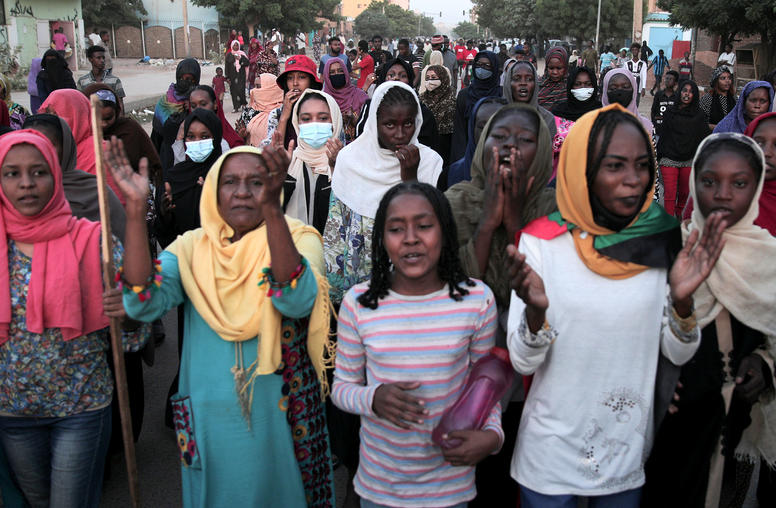
Darfur after Bashir: Implications for Sudan’s Transition and for the Region
This report examines the role of Darfur in Sudan’s domestic politics and international relations since the overthrow of Omar al-Bashir in 2019. It traces how Darfur’s importance has shifted with the growing aspirations and power of Mohamed Hamdan Daglo – more commonly known as Hemetti – and the Rapid Support Forces that he governs. It concludes by examining where Western actors may have leverage to push for both peace in Darfur and civilian rule.
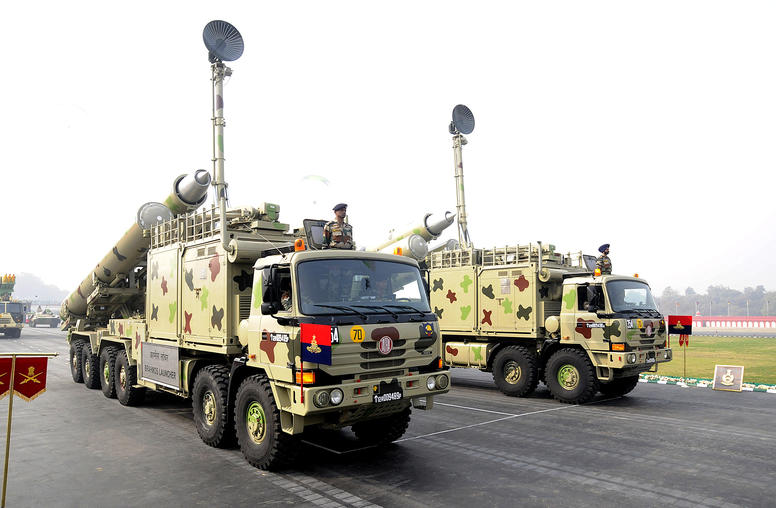
Enhancing Strategic Stability in Southern Asia: USIP Senior Study Group Final Report
This report reviews the challenges posed by changing strategic circumstances in Southern Asia, assesses a range of US policy options, and presents a set of priority recommendations for US policymakers.

Brian Harding on the U.S.-ASEAN Summit
Ahead of this week’s U.S.-ASEAN summit, USIP’s Brian Harding says the Biden administration is “kicking off a really intense period of diplomatic engagement with Asia” with plans to draw a contrast with China and seek cooperation on issues such as climate change and supply chains.

Elizabeth Murray on Peacebuilding and the Global Disability Summit
The pandemic has “really laid bare some inequalities” facing those with disabilities, says USIP’s Elizabeth Murray. But last week’s Global Disability Summit offered “an opportunity for disability inclusion to be integrated across U.S. foreign policy,” particularly when it comes to peacebuilding programs.

Donald Jensen on the 30th Anniversary of the Soviet Union’s Fall
Three decades after President Mikhail Gorbachev resigned, beginning the dissolution of the Soviet Union, USIP’s Donald Jensen says, “The collapse is still continuing. It didn’t fall apart at once … and in many ways [it] shapes our relationship with Eastern Europe and Russia today.”

Gavin Helf on the Aftermath of Kazakhstan’s Unrest
Kazakhstan has stabilized after protests broke out to start the new year. USIP’s Gavin Helf says while the sudden unrest was driven by “real, honest-to-goodness protests … what we really saw was the weakness of authoritarian systems,” as loyalists of the previous and current leaders clashed amid the public upheaval.
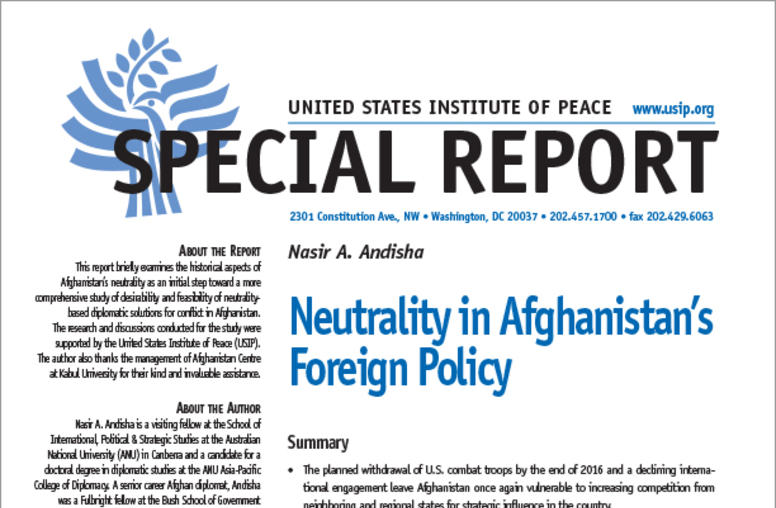
Neutrality in Afghanistan’s Foreign Policy
President Obama’s decision to withdraw all U.S. combat troops from Afghanistan by the end of 2016 leaves that country once again wide open for an intensified regional race for strategic influence in the country. The majority of experts—both Afghan and international—agree that lasting peace and stability in Afghanistan require internationally backed regional arrangements. A recent forum involving high-profile Afghan politicians, former diplomats, and civil society leaders underscores this cons...
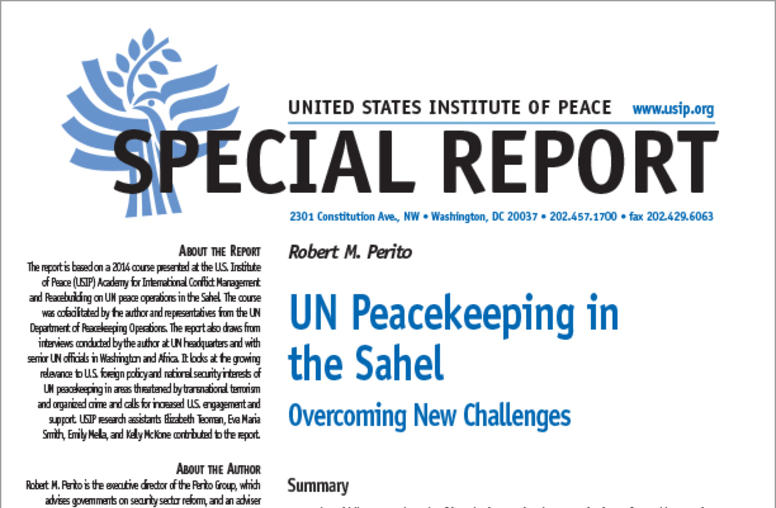
U.N. Peacekeeping in the Sahel: Overcoming New Challenges
New U.N. operations in the Sahel present unprecedented challenges for U.N. peacekeeping. They involve the United Nations directly in the struggle against transnational Islamist terrorism, weapons proliferation, and illicit trafficking by international organized crime. The United Nations must operate in countries with harsh terrain, vast expanses, poor communications, and porous borders. In response, the Security Council adopted more robust mandates based on the peace enforcement provisions of...
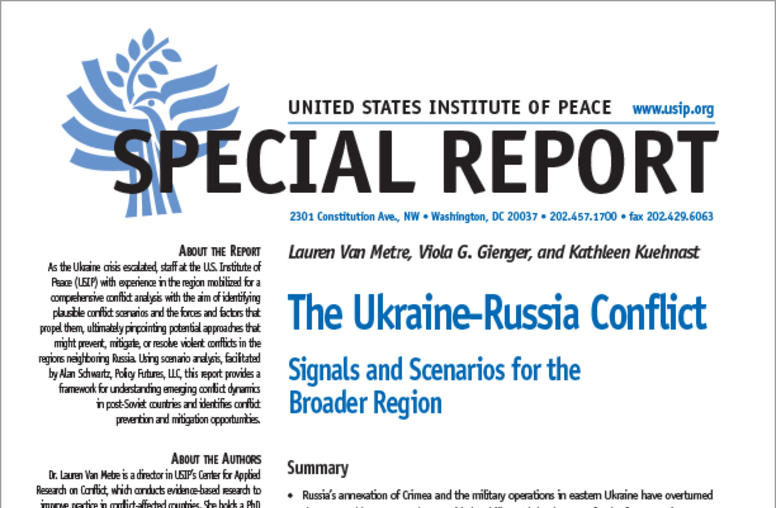
The Ukraine-Russia Conflict
Russia’s annexation of Crimea and its military operations in Eastern Ukraine have overturned the post–Cold War norms that had provided stability and development for the former Soviet countries bordering Russia. As neighboring countries assess their own security situation based on Russia’s aggressive practices in Ukraine and the West’s response, they are actively testing the new contours of Russian and Western engagement, regional alliances and relationships, and regional conflict dynamics.
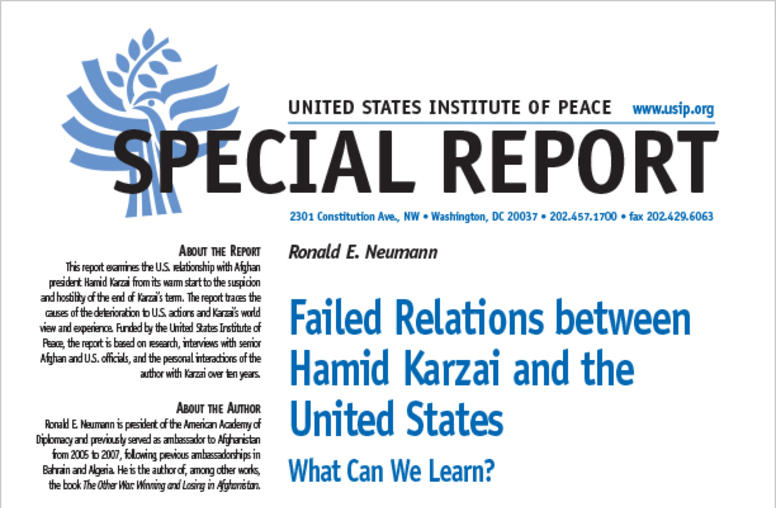
Failed Relations between Hamid Karzai and the United States: What Can We Learn?
The U.S. relationship with Afghan president Hamid Karzai deteriorated from a warm start to suspicion and hostility over the course of Karzai’s term. Intertwining personal and political considerations, this report examines how aspects of the Afghan political culture that is part of Karzai’s life experience, combined with a counterproductive U.S. approach that unnecessarily aggravated the situation, led to a downward spiral of miscommunication and mistrust that continued to the end of Karzai’s ...